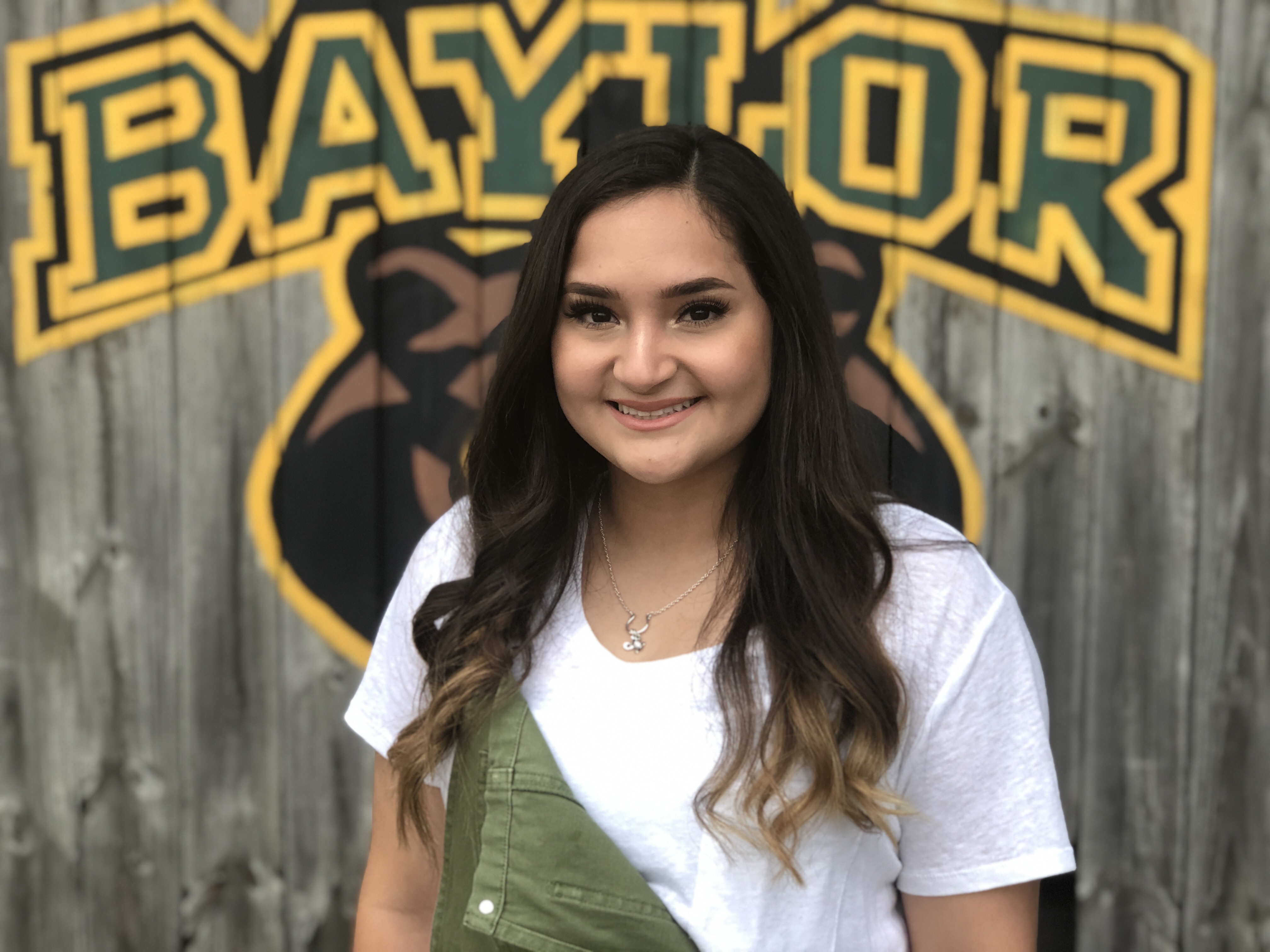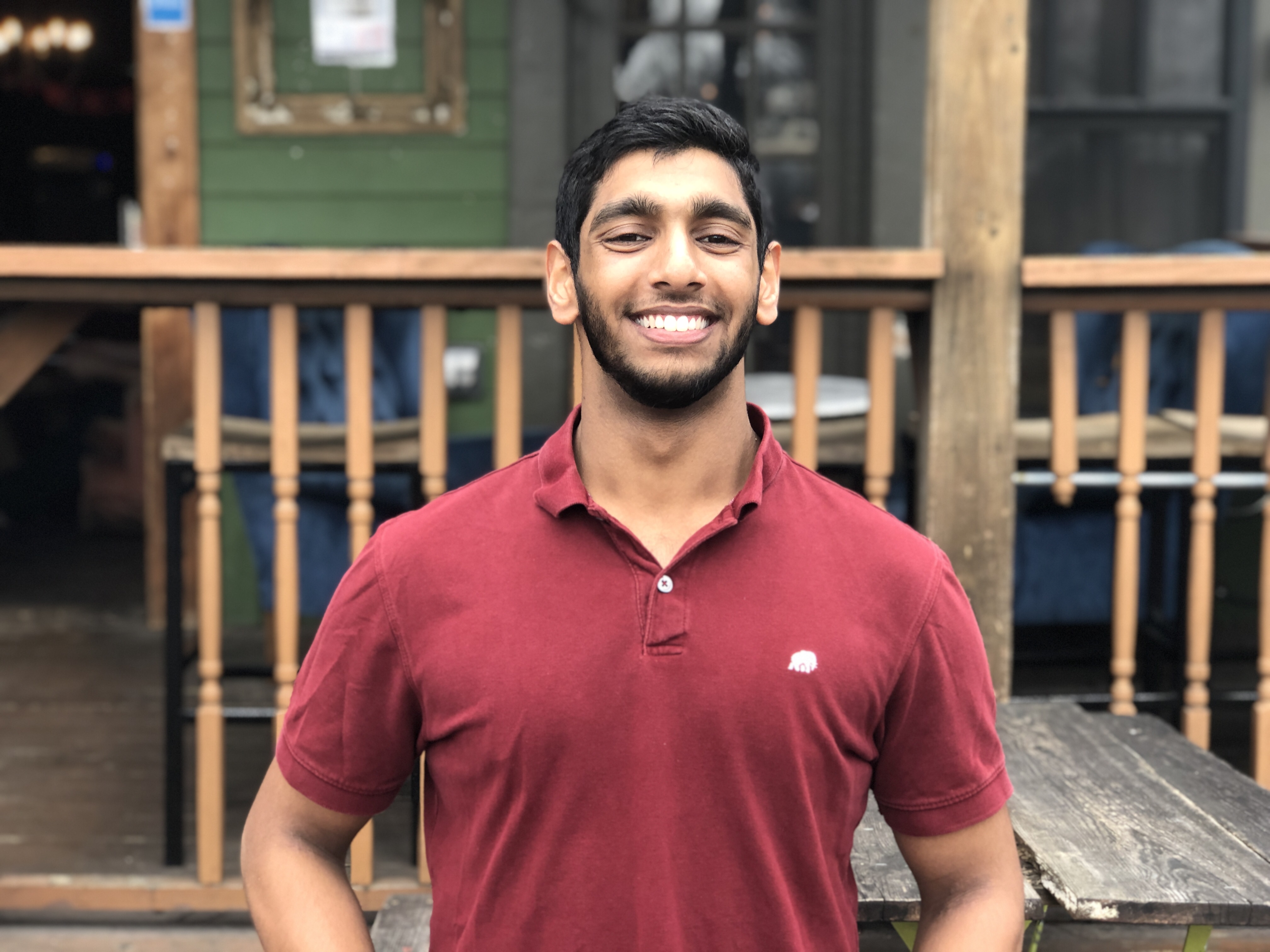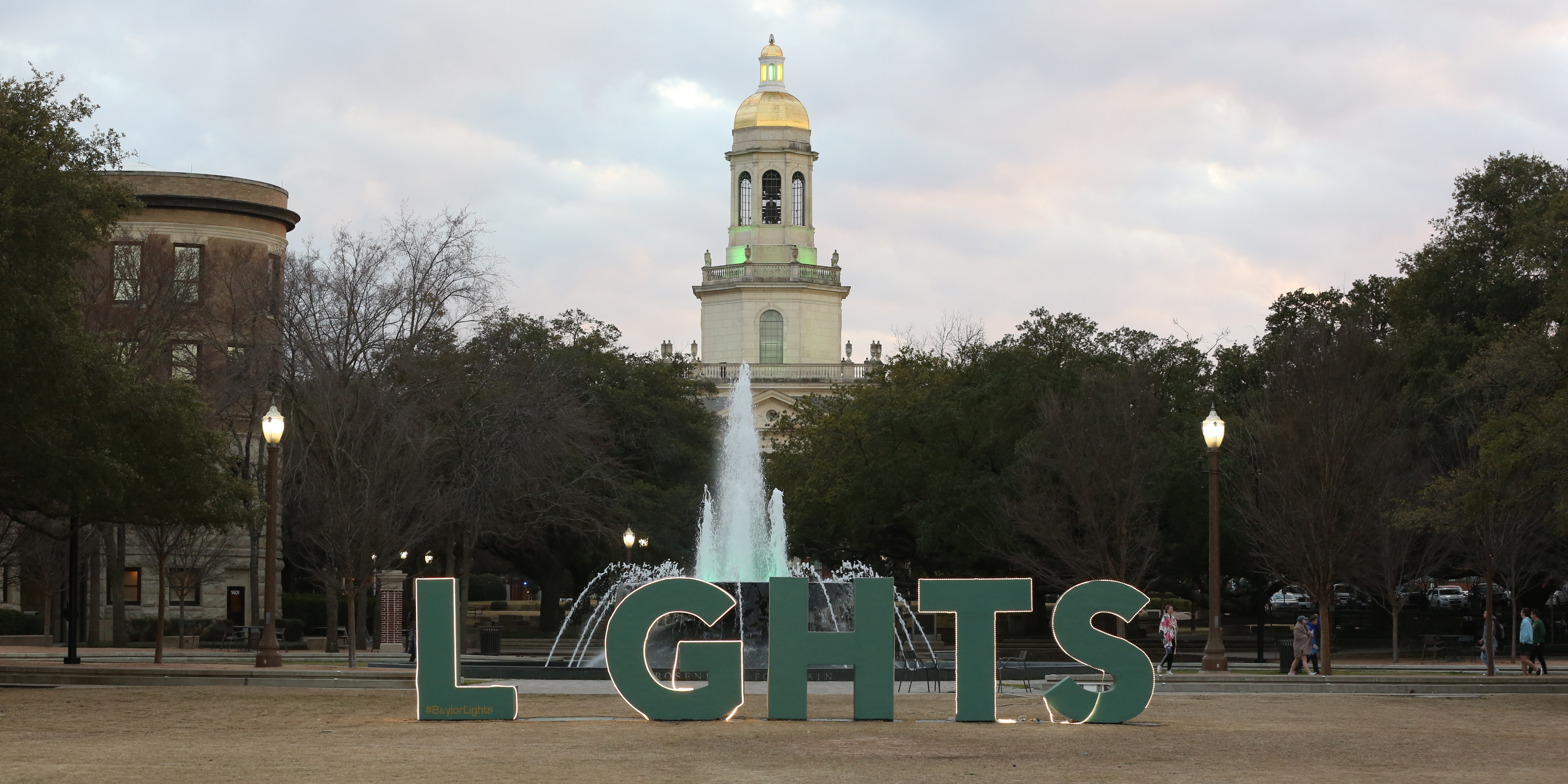4 Baylor Bears whose lights are shining bright
Countless Baylor students are shining their light (and reflecting Christ’s light) in their lives — on our campus, in their communities, and across the world. Baylor’s social media accounts regularly share such stories; here are just a few recent examples of what we call #BaylorLights:
Dania Buenrostro, a sophomore nursing major from Richmond, TX:

“My senior year [of high school], one of my really good friends passed away, totally unexpected. She was hit by a drunk driver. This happened only a few months prior to Line Camp. It was still kind of fresh, and I didn’t know how comfortable I felt sharing that, just because I knew that I was going to start crying. But I saw everybody else being so brave and so sweet and talking about what makes them them, so I shared my experiences.
“Talking about it was hard because I was like, ‘I’m not over this. I’m never going to get really over it.’ But they were so kind and so comforting and they were like, “We don’t understand exactly what you’re going through,” because they haven’t gone through it. But they understand pain in a different way. So it was so sweet, because they were just so comforting and wanted to walk alongside me through that, through recovering, just mentally and emotionally through that.
“When I went to visit another college, when I was touring, it was like, ‘I’m not sure if I’m really wanted here.’ It’s just like, I didn’t feel like I was at home. So then coming to Line Camp and having someone be like, ‘No, we want you here. You’re here for a reason. We love you.’ That was so incredible.”
Michael Huerter, a master of divinity/master of music student from Annville, PA:

“I’m part of a group called the Bernard Ramm Scholars Program It’s a group of graduate students — some MDiv students from Truett, and then some science students in various STEM fields. It’s meant to just facilitate conversation about the interaction between faith and science, and the challenges that we can face with that in each of our separate fields.
“We’ve talked about how, for those of us who are seminarians, it’s difficult for us who want to be intellectually rigorous and engaging with science and those kind of things when we go into ministry contexts where, for a lot of people, that’s threatening. Or on the other side, people who are in science fields feel like they’re unable to bring their faith to their fields, where any kind of religious outlook can be seen as a threat in some science circles. …
“I want to have made people think, and expose people to different perspectives that they may not have gotten otherwise. An example of that would be, in almost all of my classes at Truett, I’m the only person who’s not a Baptist. I grew up in an another denomination called Brethren in Christ. They’re not wildly different, but there are some differences. That’s always an interesting experience for me, knowing that I’m kind of the odd one out in that regard. But it also gives me a unique opportunity to offer perspectives that people don’t necessarily have, coming from a different cultural sphere, not being in the South and the Bible Belt and having grown up in a different place with people of different perspectives and values.
“I hope to do that in ways that are considerate and gentle… I see myself having more of an impact in terms of individual people and relationships rather than on the student body or in kind of a public sense. Even when I was thinking about, what does it mean to be a light… Maybe I can provide that for somebody else — to be present with them in a way that they can come to some recognition or discernment of who they are, what they want to do, what God is telling them to do and be… Something really special can happen when we’re able to both be present with people over the long term of day-to-day life, and sit with them in the really challenging and hard moments when there’s nothing you can do to fix anything.”
Sierra Raheem, a junior professional writing major from Naperville, IL:

“I wanted to come to Baylor because in my earlier years, I actually went to a Christian private school, and having that early Christian education really shaped me to who I am today. Knowing that I could go to a school in my undergrad that was built on Christianity really made me want to go to Baylor. I wanted to see how could I insert my love for Christ into my career, and I believe Baylor really gave me that option to do that.
“I believe my purpose is to inspire people through my words. I usually don’t tell people this because I like to wait until I get to know them, but I was born with Pierre Robin sequence. It’s a rare birth defect, and basically it caused me to have a facial abnormality. My jaw was pushed back when I first was born, and I had breathing problems and a cleft palate. And if you know anything about a cleft palate, you’re born with a speech impediment. For a lot of years in my earlier life, I actually had a speech impediment and I had to go through speech therapy.
“Despite that, I developed a love for speaking. Ironically, I loved to speak out loud and do a lot of stuff, even when I was in kindergarten. I remember I was selected to read a book to eighth graders — which was a big deal when you’re five, you know, reading a book to 13-year-olds. And so ever since then, I just developed this love for public speaking, because I felt like God gave me a voice for a reason — to really inspire and let people know that it doesn’t matter what you go through, as long as you have God and you’re able to overcome those challenges.
“Coming here to Baylor and just being a black woman, I’m a double minority. I do bring a unique experience and a unique voice to many of my classes and to my classmates. … I went to a mostly white high school, but we did not have a community like Baylor does. There were a number of us, but if we had a black student union, the meeting would be like once a month. It wasn’t like a every week type of thing, but I remember whenever they tried to do something for Black History Month, it was always guaranteed to fail, because it was hard for them to get the administrators to see how important this was to us.
“So coming here to Baylor, I was so shocked to see how it really was a big family, this community, and that people knew everyone. For the most part, I know almost everyone who’s African American that goes to Baylor, and that’s because we have all these events that help us come together. I feel like it’s an important thing to have.”
Aadil Sheikh, BS ’17, MA’ 18, a doctoral student in biology from Cedar Park, TX:

“I’ve been interested in cancer since I was a kid. I’ve seen so many people go through it in my family. As a kid, I wanted to make them better, but now, it’s like, “Hey, can I do something about it?” And that kinda just stuck with me, over to my adult-life years.
“During my undergrad years, I kinda lost that spark for science and I was like, ‘I’m ready to leave. I’m ready to go back home.’ And then [Dr. Joe Taube and Dr. Leigh Greathouse] came along and worked with me for my master’s, and their enthusiasm and their commitment to the pursuit of knowledge was like, ‘Okay, maybe there is something in this field for me, and maybe I can pursue it and make something of my own and follow their examples.’ So they helped out a lot, and I decided if these people were willing to put that time and effort into making me a better researcher, a better person, I might as well stay with them and learn as much as I can from them.
“Dr. Taube has this love for science. He has this commitment to teaching others. In his laboratory, we have a pretty decent-sized lab. … He still takes the time that if we have a question, within his schedule, he will take the time to explain to you and he will explain it to you as many times as necessary until you understand the concept. So it’s just his dedication to the students that is, wow. He’s the kind of guy that you don’t wanna disappoint.
“And same thing with Dr. Greathouse, as well. She’s very enthusiastic about what she does. She herself is a cancer survivor, and that’s what brought her into the field. So hearing about her personal experiences and also her connection with God; she’s done a bunch of commentary on religion and science and having faith, and it’s interesting to hear her perspectives. And just having them both put the time into teaching me things that I don’t necessarily know or understand well, it’s very … It feels good that there are people there who care enough to tell me that maybe I’m doing something wrong, or maybe I’m on the right track, or just giving me the guidance that I didn’t necessarily have.
“Now as a graduate student, I have to be a mentor to undergrads in the Taube and Greathouse labs. I’m still learning what it is to be a mentor. … I guess one of the things I’ve been able to help out with is figuring out procedures or experimental designs. Even if I don’t know the answer off the top of my head, I’m just like, ‘Okay. You know what? Let’s just figure this out together.’ That way, I learn as well. So it’s not that I’m just teaching the undergrads, it’s also that they’re helping me learn.”
Read more profiles like these here.
Sic ’em, #BaylorLights!


